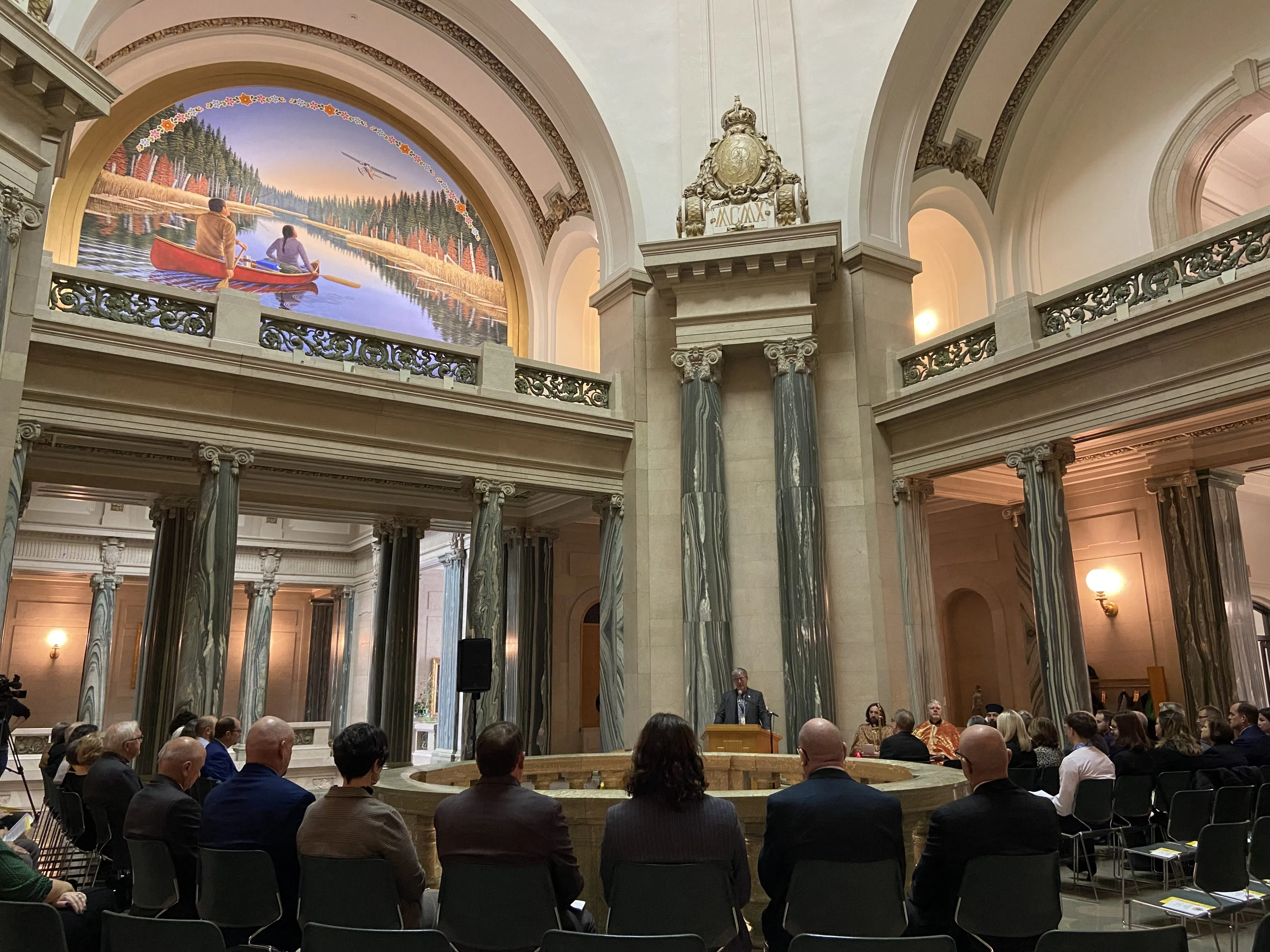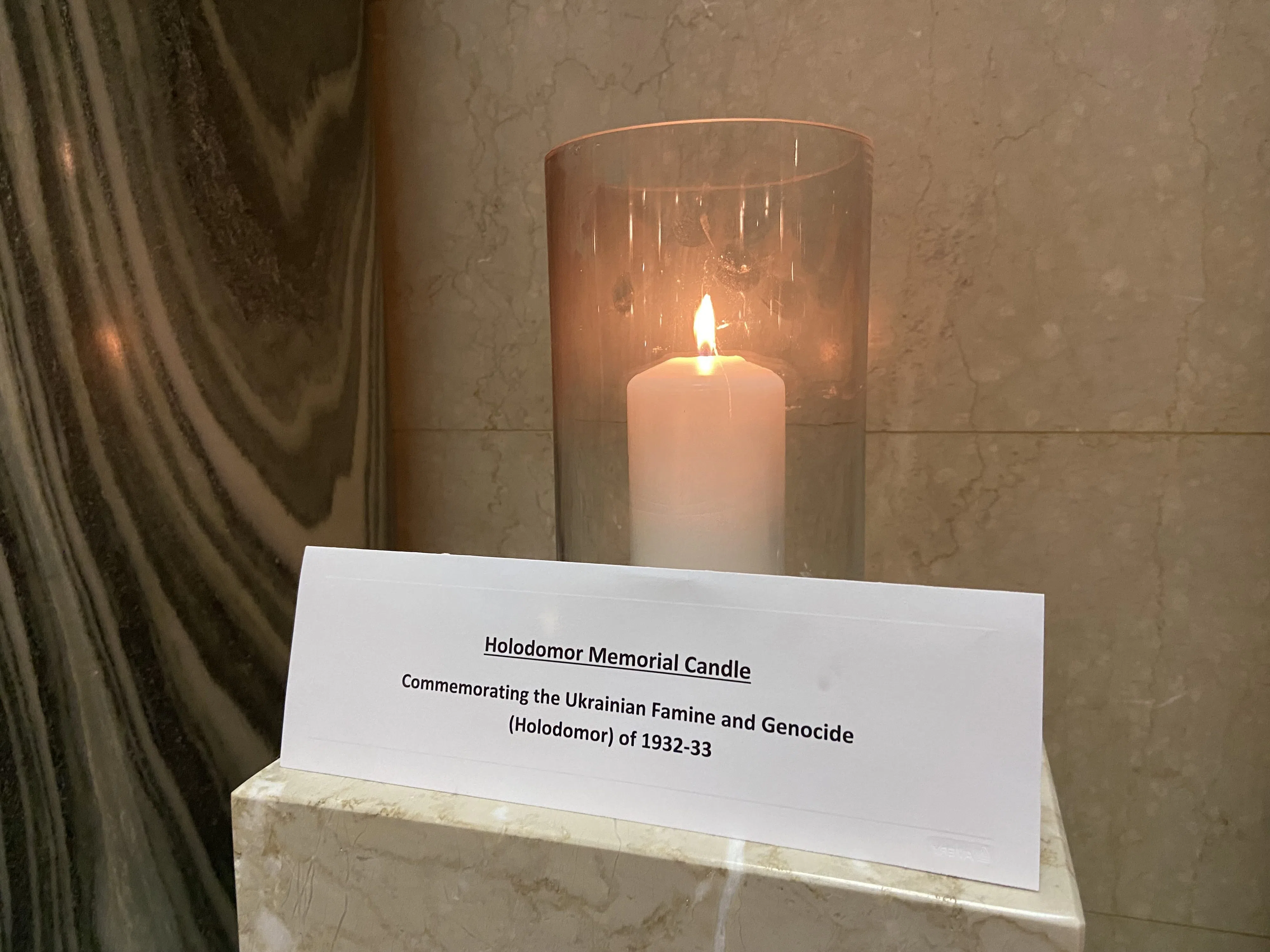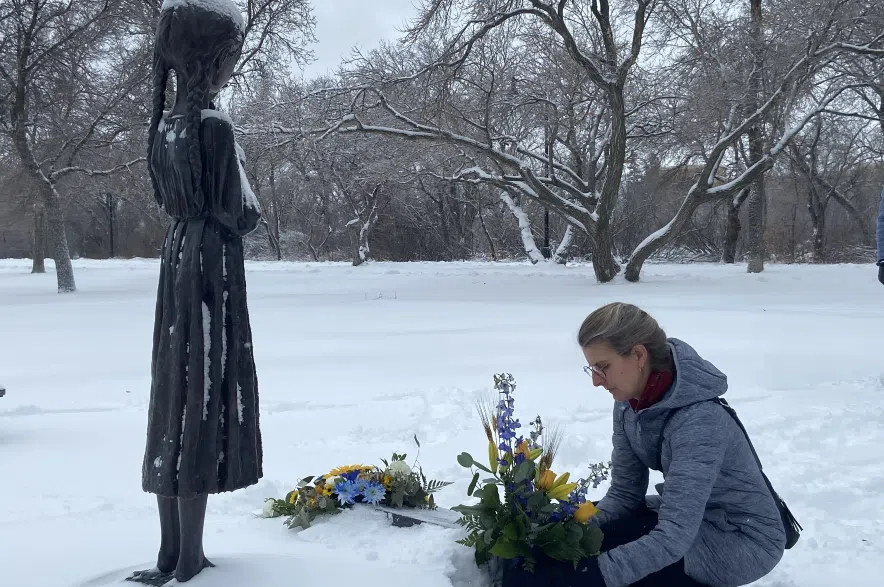A handful of people braved the cold and snow to attend a memorial for the Holodomor famine at the Legislative Building in Regina this week.
Millions of Ukrainians lost their lives during the man-made famine between 1932 and 1933 while working under Soviet management of agricultural crop production in their region.
Ken Krawetz is the Honourary Consul of Ukraine in Saskatchewan.
He is honoured that the province chooses to remember the tragedy.
“For the government to continue with a service like you saw today, shows the appreciation to the Ukrainian pioneers that have been here for 100 years plus, and continue to come,” he said.

Ken Krawetz is Honorary Consul of Ukraine in the province of Saskatchewan. He addressed the crowd during the ceremony at the Legislative Building on Nov. 19, 2024. (Nicole Garn/980 CJME)
During the Nov. 19 ceremony, Krawetz and other speakers acknowledged the ongoing tragedies of the war between Russia and Ukraine.
He said the people of Ukraine are resilient.
“I think it shows the strength of Ukrainian people, not only here but in Ukraine itself,” he said.
“When we saw the war start back in February of 2022 and we saw the columns of Russian tanks marching into Ukraine, I don’t believe that many people thought that Ukraine was going to exist as a nation. But the Ukrainian people developed many different ways of repelling the Russians, and they stopped them.”
Read more:
- Sask. man raising funds for memorial after brother killed in Ukraine
- Saskatchewan shows solidarity with Ukraine on invasion anniversary
- Displaced Ukrainians in Regina reflect on two years of war with Russia
The ceremony included the singing of both Canada and Ukraine’s national anthems, a ceremonial candle, prayer and a moment of silence.
A memorial is now being led before a candle lighting ceremony, moment of silence and wreath laying at the Holdomor Statue. @CJMENews @CKOMNews pic.twitter.com/ncpOyWk9kt
— Nicole Garn (@garnnic) November 19, 2024
The ceremony also acknowledged the 1,000th day of war. Krawetz said he’s disappointed that it’s been so long.
“I believed that it would end much sooner, that there would be much more assistance from nations — especially Western nations — that would force the Russians to understand that Ukraine is a democratic country and that we must preserve that nation as a democracy,” he said.

A candle was lit during the ceremony to remember the victims of the Holodomor famine. (Nicole Garn/980 CJME)
According to Krawetz, remembering the famine and the Holodomor statue in Regina, shows the Ukrainian people who live in Saskatchewan that they belong.
“That shows the rest of the world, and maybe the rest of Canada, that Saskatchewan is a place where we recognize the importance of immigration,” he said.
“We recognize the importance of of Ukrainians coming to Canada.”
Krawetz acknowledged his own baba (grandmother) and gido (grandfather) arrived in the country in 1903 and 1907 respectively. He said Ukrainians are pioneers of Canada.
Following the ceremony was a flower-laying ceremony at the Holodomor statue, located southeast of the Legislative Building on Lakeshore Drive.
Read more:











